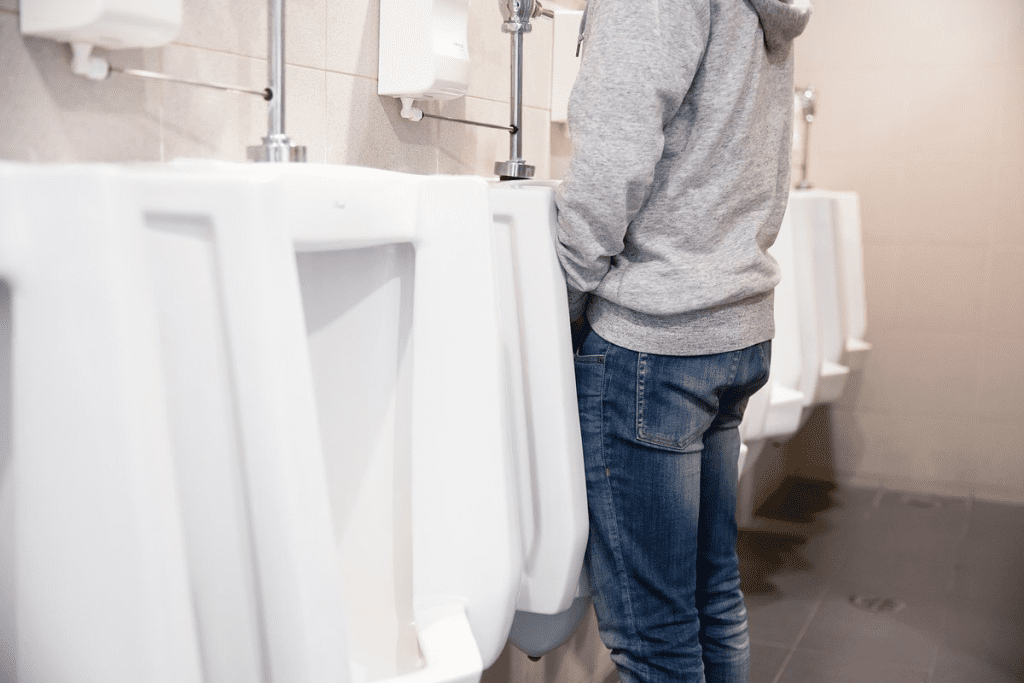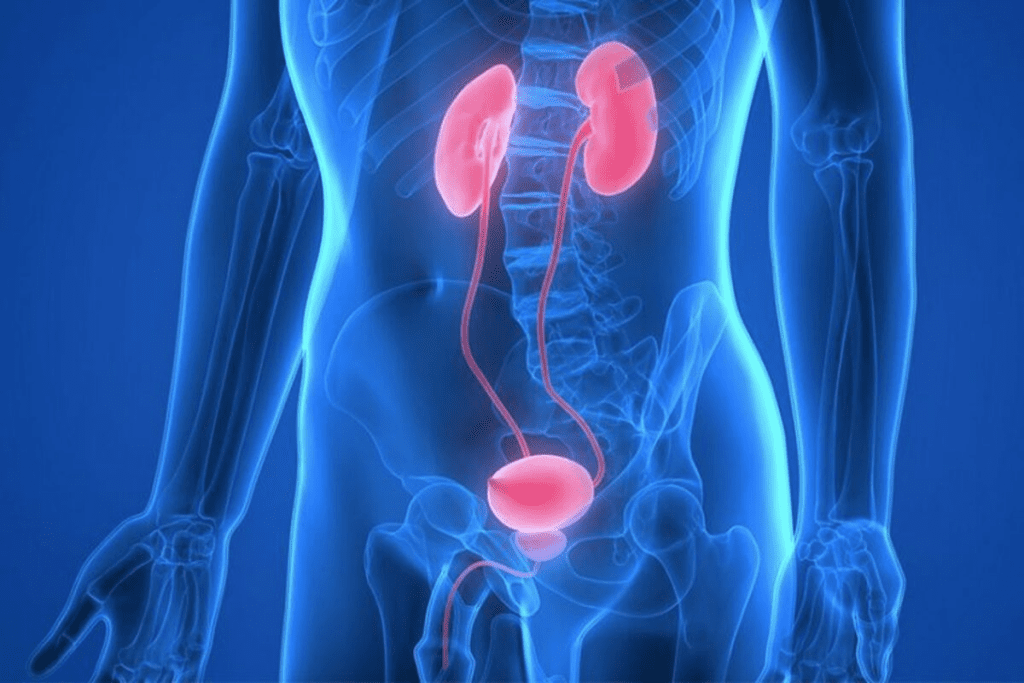Last Updated on November 25, 2025 by

Urinating 10 times a day can be normal for many healthy adults, especially with higher fluid intake, so it isn’t always a sign of frequent urination that needs treatment.
“Normal varies widely by person and can range from about 4 to 10 trips per day, depending on fluid intake, caffeine or alcohol, bladder size, age, and overall health, so context matters when labeling frequent urination.
Patterns matter more than a single number: a sudden increase, urgency, burning, blood in urine, fever, or nighttime waking that disrupts sleep may indicate frequent urination requiring evaluation.
Tracking fluids, caffeine, and timing can clarify triggers, and anyone concerned about persistent changes in frequency should discuss symptoms and habits with a clinician to rule out causes of frequent urination.
Knowing what’s normal when it comes to urination is key for good urinary health. Urination, or micturition, helps get rid of waste and extra fluids from our bodies.
Most adults pee between 4 and 7 times in a day, with an average of 6 times. But, how often you pee can change due to many things like how much you drink, your age, and your health.
“The normal range for urination frequency is generally considered to be between 4 and 10 times per day.” This range helps cover the different habits and situations people face.
The 4 to 10 times daily range fits different lifestyles and how much you drink. For example, drinking lots of fluids, especially caffeinated or alcoholic drinks, can make you pee more often.
A healthcare expert said,
“Urination frequency is influenced by various factors, including diet, medications, and underlying health conditions.”
It’s important to think about these factors when checking if your pee frequency is normal.
Things like age, pregnancy, and certain medical conditions can also affect how often you pee. For example, older adults might pee more often because their bladder gets smaller.
To know if peeing 10 times a day is too much, we need to look at personal factors and health. Frequent urination, or polyuria, can be normal for some. But for others, it might signal a health problem.
Research has given us clues about normal urination. A study in the Journal of Urology found that healthy adults pee between 4 to 10 times a day. Most people fall within this range.
Studies show that the normal range for peeing is quite wide. For example, a big study found that most people pee between 2 to 10 times a day. This range highlights the need to consider personal factors when checking if peeing frequency is normal.
Another study looked at older adults. It found that they pee about 7.4 times a day, with a range of 4 to 12 times. This shows that while there’s a general trend, there’s a lot of variation among people.

Age is a big factor in how often we pee. As we get older, our bladder and muscles controlling pee can weaken. This leads to more frequent peeing. Older adults might also pee at night, which can mess up their sleep.
The table below shows how peeing frequency changes with age:
| Age Group | Average Urination Frequency | Common Factors Influencing Frequency |
| Young Adults (20-40) | 4-7 times/day | Fluid intake, diet, lifestyle |
| Middle-Aged Adults (40-60) | 5-8 times/day | Hormonal changes, medication |
| Elderly (60+) | 7-10 times/day | Weakened bladder muscles, nocturia |
Age affects how often we pee, but other things like how much we drink, what we eat, and our health also matter. If you’re worried about how often you pee, talking to a doctor is a good idea.
Increased urination can be a symptom of various underlying factors. Understanding these causes is essential to managing your urinary health effectively.
One of the most straightforward reasons for increased urination is your fluid intake. Drinking a lot of fluids, especially diuretics like coffee, tea, or alcohol, can make you pee more often. Also, some foods and drinks can irritate your bladder, making it worse.
Being mindful of your diet and fluid intake can help manage urination frequency. Reducing or avoiding diuretic substances can decrease how often you need to pee.

Certain medications and supplements can affect how often you urinate. For instance, diuretics prescribed for hypertension can increase urine production. Other medications, such as those used to treat diabetes or certain psychiatric conditions, can also have this effect.
Some common culprits include:
If you suspect your medication is causing increased urination, it’s crucial to consult your healthcare provider. They can offer alternatives or adjust your dosage.
Your daily habits and lifestyle choices can significantly impact your urination frequency. For example, habitually going to the bathroom “just in case” can condition your bladder to hold less urine, leading to more frequent trips to the bathroom.
Other lifestyle factors include:
Making adjustments to your daily routine, such as practicing good bladder habits, can help manage your urination frequency.
Hormonal fluctuations can significantly affect urinary frequency. During pregnancy, for instance, the body produces more urine, and the growing uterus can put pressure on the bladder, leading to more frequent urination.
Other hormonal changes, such as those experienced during menopause or due to certain thyroid conditions, can also impact how often you pee.
Understanding the role of hormonal changes in urination can help you better manage your symptoms. Consulting with a healthcare provider can provide personalized guidance.
Wondering when to get help for peeing a lot? It’s important to know the warning signs. While it’s normal to pee often, some symptoms mean you should see a doctor.
Frequent urination can come with other signs that need medical help. These include:
If you have these symptoms with frequent urination, see a doctor. They can find out what’s wrong and how to fix it.
Your doctor might suggest several tests to find the cause. These include:
Understanding these test results helps your doctor create a treatment plan for you. If you’re worried about frequent urination in women or why do I have to pee so much, getting medical help is key.
Knowing when to seek medical help for frequent urination helps keep your urinary health good. It’s a step towards better health and well-being.
Managing your urinary health is key to feeling good. Knowing what’s normal and when you pee too much can spot problems early.
Urinating a lot might mean there’s something wrong that needs a doctor. Being aware and knowing when to get help can help keep your urinary health in check.
We’re here to offer full support and advice to help you manage your urinary health well. Our goal is to give you top-notch healthcare and support, so you can manage your health effectively.
Good urinary health is essential for your overall health. Stay informed, be proactive, and get medical help when you need it. This way, you can keep your health in top shape.
Peeing 10 times a day can be normal. It depends on how much fluid you drink. Studies show healthy people can pee from 4 to 10 times a day.
Most adults pee between 4 and 7 times a day. But, it can range from 4 to 10 times. Age, how much you drink, and your lifestyle play a role.
Age matters a lot. Older people pee about 7.4 times a day on average. As we get older, how often we pee can change.
Drinking a lot, what you eat, some medicines, your lifestyle, and hormonal changes can cause more peeing. Pregnancy is an example of hormonal changes.
See a doctor if you pee a lot and feel pain, see blood in your pee, or always feel thirsty. These signs need medical attention.
Your doctor might suggest tests to find out why you pee a lot. This depends on your health and past medical issues.
Learn about normal peeing, find out why you pee a lot, and know when to see a doctor. These steps help keep your urinary system healthy.
You might pee a lot because you drink a lot, take certain medicines, or have a health issue.
Yes, peeing too much can mean you have a health problem like diabetes or a urinary tract issue. A doctor should check it out.
You should pee between 4 to 10 times a day. It depends on how much you drink and your lifestyle.
Subscribe to our e-newsletter to stay informed about the latest innovations in the world of health and exclusive offers!